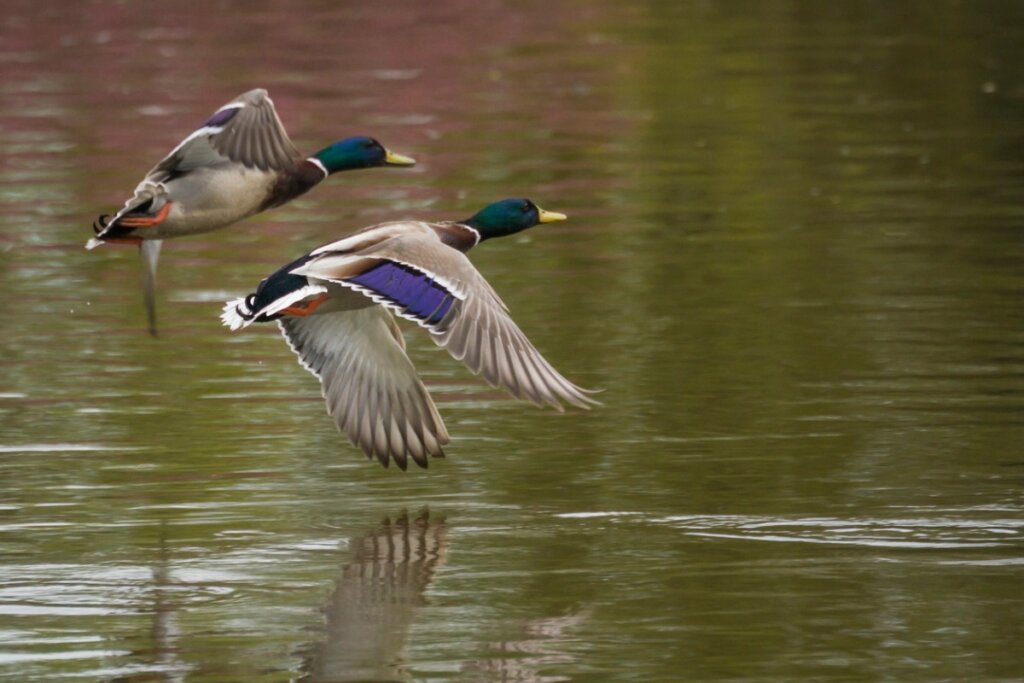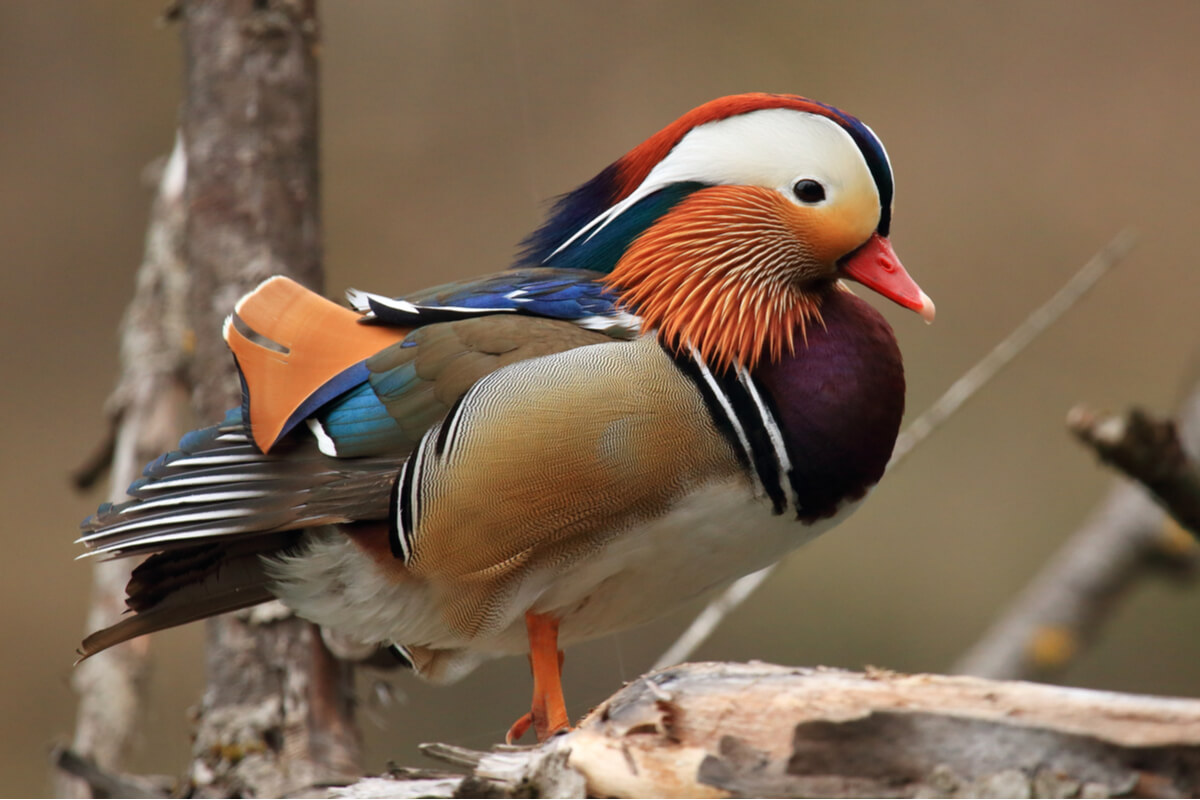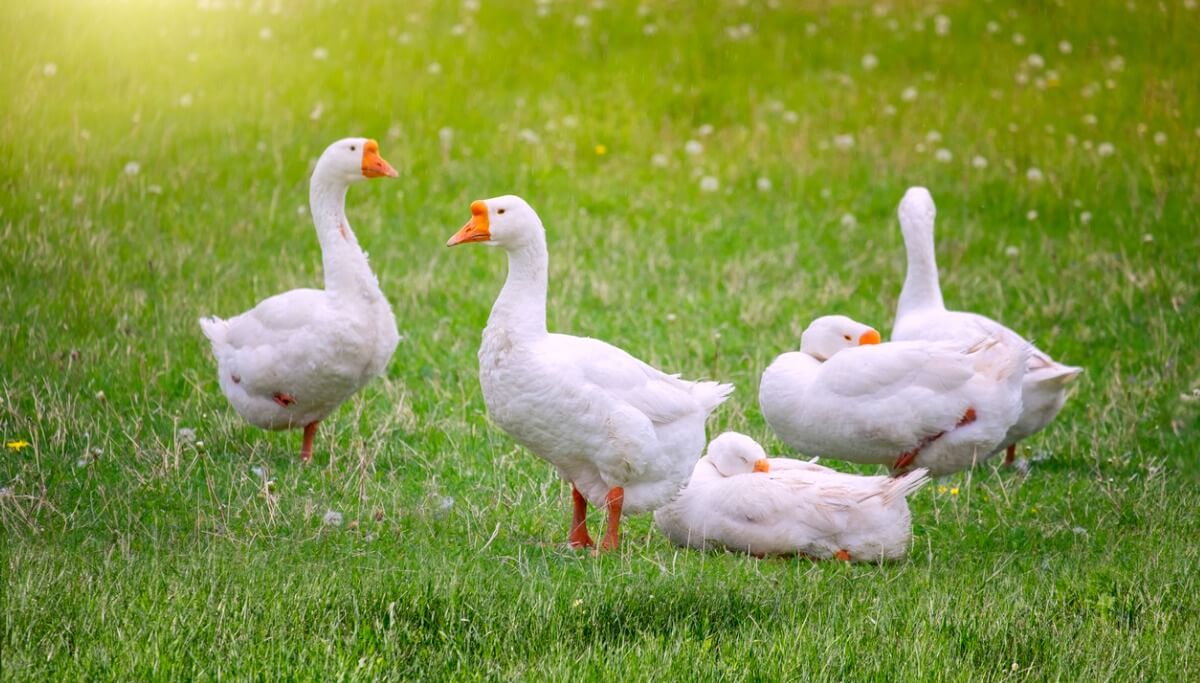5 Differences Between Ducks and Geese

Historically, ducks and geese have been used for hunting by man. Although both are birds that, at first glance, seem very similar, the truth is that there are differences between ducks and geese. These range from the long necks of geese to the characteristic behavior of ducks.
Both taxa inhabit all continents — except for Antarctica — and their legs are widely spaced, so they walk awkwardly, but swim with great agility. Their plumage is waterproof, thanks to an oil produced by a special gland, which allows them to stay afloat. Despite these similarities, there are many differences between ducks and geese.
1. Nomenclature
Although ducks and geese are from the Anatidae family, both groups belong to different subfamilies. Ducks are part of the Anatinae subfamily, while geese belong to the Anserinae subfamily. Male ducks are generally called ‘drakes’ and babies ‘ducklings’. Male geese are called ‘geese’ and babies ‘goslings’.
2. Changes of plumage
Another difference between ducks and geese is the number of times they molt. While ducks shed two molts a year in winter and spring, geese only shed their fur once a year. On the other hand, ducks have a sexual dimorphism in their fur, a characteristic that geese lack.

3. Behavior and reproduction
Ducks are very social birds, spending much of the day foraging for food and moving very well on water. While they swim so well, they do have some problems on land, as they have a very slow gait. They live in groups and sleep at night, in the company of other individuals. On the other hand, they establish annual or temporary pairs every year.
Geese have the advantage of being able to dive. They inhabit lakes, rivers, and dams, although they can sometimes be found on swamps and sandy shores. They have a very energetic and powerful flight and differ from ducks in that they bond with their partner for life.
4. Caring for the young
In addition to the reproductive area, another difference between ducks and geese is that the latter share the task of looking after and incubating the chicks equally. Females and males take turns to ensure the well-being of their young, while, in ducks, the female is in charge of caring for and incubating the offspring, as the father “disappears” after mating.
Also, these species differ in courtship and sexual maturation. Ducks reach sexual maturity when they’re 1 year old and their sexual courtship is more elaborate, while geese have a sexual maturity at 2 or 3 years of age and their courtship is simpler. Ducks are also seen to lay between 7 and 12 eggs, while geese lay 5 to 8.
5. Domestic ducks and geese
It’s important to note that there are also domestic ducks with characteristics different from the wild ones. The domestic duck is docile, small, and has a short neck, with white or yellow plumage. In contrast, the male wild duck has gray or brown plumage and bright green feathers on its neck, while the female is white, brown and black.
Geese can also be wild or domestic, the latter being those that come from Asia and western Europe, spreading to farms and homes around the world. Wild geese live in flocks, in open forests near bogs, or in food-rich areas.
Other differences between ducks and geese
Apart from these aspects, there are even more differences between ducks and geese. Here are the most important:
- Geese can nest in tree holes
- Ducks nest in tall grass
- Geese have larger, webbed feet
- Ducks are smaller than geese
- Ducks live in fresh or saltwater. They consume small fish, plants, and insects.
- Geese eat more plants than ducks and only consume insects or fish in specific cases.

As you will have seen, ducks and geese differ in many ways that you may not have been aware of. Not only the physical and the genetic composition are different, but the behavior of both groups is also markedly different.
All cited sources were thoroughly reviewed by our team to ensure their quality, reliability, currency, and validity. The bibliography of this article was considered reliable and of academic or scientific accuracy.
- Cisnes, Gansos, Patos Y Cercetas. Recogido el 14 de mayo de 2021 de: https://ecuador.inaturalist.org/taxa/6912-Anatidae
- Diferencia entre patos y gansos. Recogido el 14 de mayo de 2021 de: https://dumac.org/diferencia-entre-los-patos-y-gansos/
